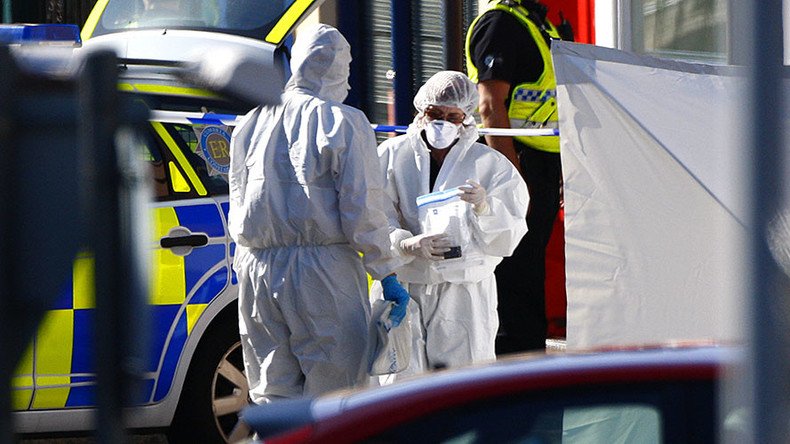Violent & sexual crime on the rise in Britain, new scoring system shows

Serious and violent crime incidents in the UK have trebled over the past five years, according to a new measurement which ranks crimes according to their severity.
Figures published by the Office for National Statistics (ONS) reveal a rise in serious violent and sexual crimes, while non-violent crimes such as theft either stabilized or fell.
A new measurement, which ranks crimes on the basis of the harm they cause to society and individuals, found West Yorkshire had the highest crime severity score, with the London-based Metropolitan Police coming in second.
Under the new system, called the Crime Severity Score (CSS), a low-level crime like cannabis possession gets three points per offence.
Tory sanctions are driving benefit claimants to hunger, destitution and crime, report warns https://t.co/o0ugVHeRTipic.twitter.com/Sf9LSHRtwk
— RT UK (@RTUKnews) May 25, 2016
A serious violent crime like murder on the other hand, is given 7,979 points per offence.
After murder and other homicide offences, the next highest crime weightings are for attempting murder, aiding suicide, and rape.
The weight of each offence is calculated by analyzing sentencing data – the tougher the sentence for a crime, the greater the weight in the score system.
“The figures suggest police are now dealing with a more serious caseload,” said John Flatley, head of crime at the ONS.
'Shocked and disgusted': Hate crime reports jump 500% since #Brexit vote – UK police chief https://t.co/LXnLBHhRyOpic.twitter.com/gL25ZvEBv0
— RT UK (@RTUKnews) July 1, 2016
“We have seen large reductions in crime. Crimes against property have fallen but police are now dealing with a higher proportion against the person.”
Initial figures found a 4.6 percent rise in the offence rate, from 75 to 97 crimes per 1,000 people between 2011 and 2016.
According to the new index, the offending rate rose from 9.6 to 11.2 per 1,000 people.
Criminologists warn that if police focus on the most serious crimes, it could result in a backlash.
“There is a real danger members of the public will take action to settle matters themselves,” said professor Marian FitzGerald at the University of Kent.












